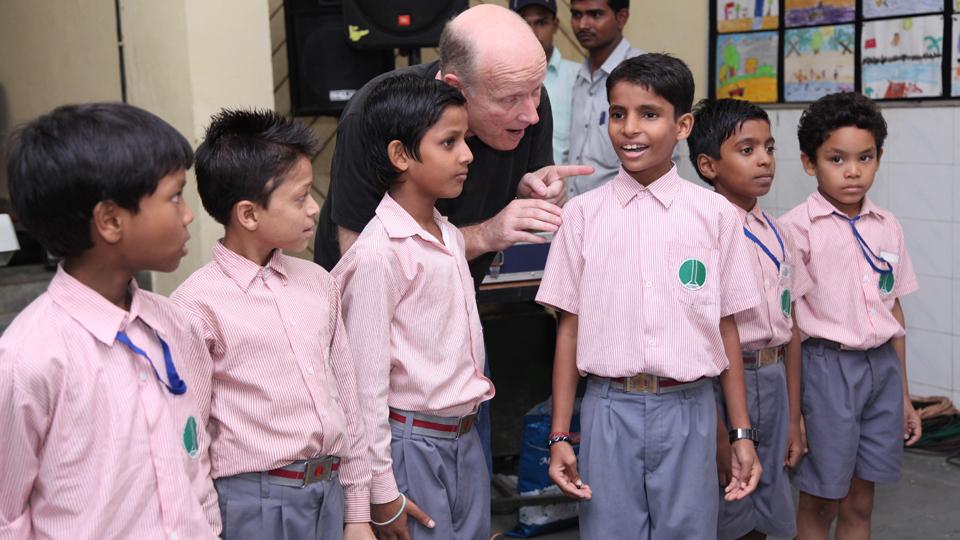Can you imagine a life without music? A life where it wasn't there alongside you in your triumphs and celebrations, your times of loneliness or despair? I certainly can't remember a time without it. It's part of life, like food and drink. Over the last couple of weeks I’ve had cause to wonder yet again at its transformative power, and its power to change lives for the better besides the pure joy and solace it can bring.
I'd been in Delhi to meet educationalists and teachers from five states across Northern India that have introduced singing into their classrooms and school work through the British Council's World Voice programme. The programme introduces teachers and children to different cultures through song via the World Song Book which contains traditional and children's repertoire from 15 countries; highly skilled British trainers pass on their skills and resources to teachers for them to use in their wider curriculum. And what started as a pilot arts-in-education project celebrating cultural connections between countries has developed organically and rapidly over the last three years in remarkable ways.
Song is not only bringing children and teachers all the musical, social, health and psychological benefits we expected; it is also supporting language teaching and cross-curricular learning by providing a compelling new pedagogy which children are responding to, powerfully. In India, teachers have started creating their own songs in order to help children learn, from English language to Maths problems, photosynthesis to geography. And what really struck me looking at the photos and videos from projects in Sikkim, Himachal Pradesh, Jammu and Kashmir, Meghalaya, Bihar and Delhi was the pure joy shining from the children's faces – they were alight from inside with an energy and happiness that can't be mistaken.
Teachers speak of a transformation of the learning experience brought about by the World Voice pedagogy and can point to huge improvements in the children’s attendance, attention, listening, self-confidence, positivity, teacher-child relationship and democracy in the classroom.
"The role of teachers has now changed from transmitters of information to facilitators for children in helping them become independent learners."
– Educationalist, Bihar
I was therefore saddened to see that the Mail on Sunday had published an article denigrating the use of money on the World Voice project, though the article I read did not chime at all with the real benefits I’ve seen delivered by this project. At a cost of less than £1 per child, World Voice is a special project – one to be celebrated – and, through the sustainable cascade method of training trainers within countries, the numbers of children reached will increase exponentially over the years making for even better value for money.
Taken at face value, maybe some people see only a class of children singing with their teacher but it is so very much more than that: it opens the children’s eyes to British and other cultures, it builds trust between countries, it increases Britain’s soft power by engaging overseas policy-makers, it reaches teachers in the remotest and hardest-to-reach regions of the world from Kashmir to Gaza, it can help to erase negative stereotypes of Britain in places where other British institutions have limited influence; it is about the transformative power of music, and isn’t that something we can all relate to?
"This little boy surprised the entire school staff as well as his peers … for the first time in three years he was truly engaged. World Voice has given him the opportunity to understand himself more. He has become active and learned to accept the other children."
– Teacher, Jerusalem
You can find out more about World Voice here.


